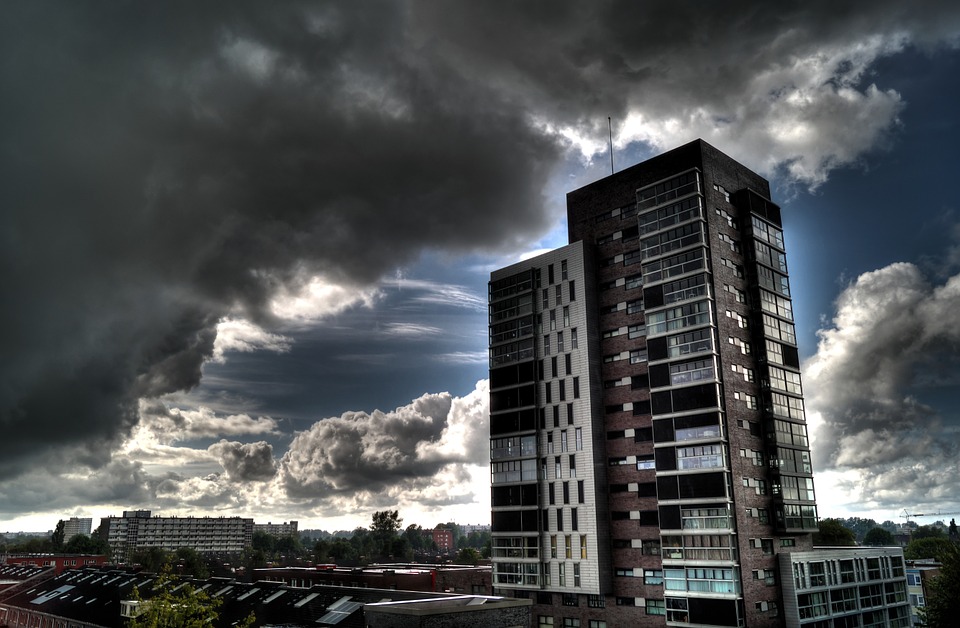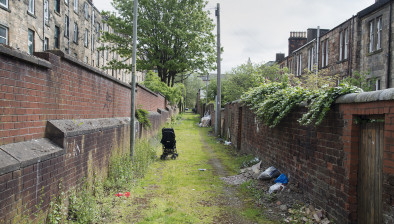England: Government to force developers to fund cladding retrofits
The UK Government has warned developers in England that they must pay to remediate unsafe cladding on 11-18 metre buildings.

Secretary of state for levelling up, housing and communities Michael Gove has written to industry giving them a deadline of early March to agree a fully funded plan of action, currently estimated to be £4 billion.
A number of residential buildings throughout the country are fitted with unsafe cladding which must be addressed. Previously, many leaseholders in these buildings had been set to pay the cost of these repairs.
Mr Gove said developers must take forward all necessary remediation work at pace - prioritising those with greatest risks first and in all cases finding the quickest and most proportionate solution to make buildings safe.
He calls on industry to enter an open and transparent dialogue with the government to hear their proposals, starting with a roundtable with the largest residential developers and trade bodies. The government will invite leaseholders and those affected by the Grenfell Tower tragedy to the table to discuss solutions at appropriate junctures to ensure discussions are not taking place behind closed doors.
All steps necessary will be taken to ensure developers pay for their role in the crisis, he added, including restricting access to government funding and future procurements, the use of planning powers and the pursuit of companies through the courts. A legal solution will be imposed if necessary.
In the letter, Mr Gove said: “Our home should be a source of security and pride. For too many of the people living in properties your industry has built in recent years, their home has become a source of misery. This must change.”
Mr Gove added: “It is neither fair nor decent that innocent leaseholders, many of whom have worked hard and made sacrifices to get a foot on the housing ladder, should be landed with bills they cannot afford to fix problems they did not cause.
“Government has accepted its share of responsibility and made significant financial provision through its ACM remediation programme and the Building Safety Fund. Some developers have already done the right thing and funded remedial works and I commend them for those actions.
But too many others have failed to live up to their responsibilities.”
In the letter, the secretary of state asks companies to agree to:
-
make financial contributions to a dedicated fund to cover the full outstanding cost to remediate unsafe cladding on 11-18 metre buildings, currently estimated to be £4bn
-
fund and undertake all necessary remediation of buildings over 11 metres that they have played a role in developing
-
provide comprehensive information on all buildings over 11 meters which have historic safety defects and which they have played a part in constructing in the last 30 years.
The government will announce a decision on which companies are in scope for funding contributions following discussions with industry but expect it to cover all firms with annual profits from housebuilding at or above £10 million.
The statement follows the secretary of state ordering the suspension of Rydon Homes, which is linked to a company responsible for the refurbishment of the Grenfell Tower, from the government’s Help to Buy scheme.
Responding to the warnings, Cllr David Renard, housing spokesperson for the Local Government Association, said: “No leaseholder should have to pay the costs of making their homes safe and the Secretary of State’s threat to use the legal system to ensure developers meet their responsibilities to leaseholders is a positive step in the right direction. However, leaseholders are not the only innocent victims of the construction industry’s failure to build safe homes.
“The construction industry must also be made to fix the fire safety defects it has built into blocks owned by councils and housing associations. Unless the Government forces the industry to act – or provides funding – we are concerned that the costs of fixing social housing blocks will fall on council housing revenue accounts and housing associations.
“This will reduce the funding available to meet the Government’s ambitions for improvements to social housing, net zero and the provision of new social housing, leaving tenants and those on the waiting list to suffer the consequences of decades of industry failure and poor regulation. Like leaseholders, council tenants and those on the waiting list are innocent victims and the Government needs to help them too.”
The Fire Brigades Union has said that Michael Gove’s announcement still leaves residents “desperately short of where they need to be”, more than four years after Grenfell.
The union, which has a long record of fighting for improved fire safety, said it is unclear whether the government plan will be enough to cover other building safety defects in buildings of this height – while existing funding does not cover these other issues in buildings over 18m. Issues with defective fire doors, internal compartmentation, wooden balconies or other construction defects have also rendered many buildings unsafe.
Matt Wrack, general secretary of the Fire Brigades Union, said: “This is a result of determined campaigning by leaseholders and tenants. It shows that the government can be pressured into progress, and we commend the efforts of campaigners.
“We have always been clear here – residents should not carry any cost for failure they did not cause. Developers, suppliers and buildings owners are responsible, and they should pay.
“However, this announcement does leave us with cause for concern. This change does not cover all fire safety failings in buildings of this height. Over four years after Grenfell, this means that residents are left desperately short of where they need to be.
“Government failures allowed this to happen - they cannot shirk their responsibility.”
Scottish lettings and estate agency DJ Alexander Ltd believes that resolving the repair of buildings of between 11m and 18.5m impacted by the Grenfell tragedy is long overdue and that the governments’ decision to seek restitution from developers is sensible.
Although there will undoubtedly be difficulties in implementing this funding from developers, it said the decision is right as it will not penalise leaseholders and will, hopefully, resolve a terrible dilemma which has hung over the heads of owners since Grenfell occurred in 2017.
David Alexander, the chief executive officer of DJ Alexander Scotland, said: “For many thousands of homeowners the threat of being unable to insure, sell, or mortgage their homes has hung over them for four years. They are clearly the innocent parties in this, and appropriate restitution is right.
“While developers have largely insisted that their developments were built to regulations at the time and that therefore they are not liable this cannot be a tenable position in the long term. There is clearly much negotiation to be concluded but, hopefully, this is the first stage in the process to resolve this terrible issue.
“Some in the industry have already questioned whether this level of funding will be sufficient and also whether only tackling the cladding issue is appropriate when there may be other safety issues involved. I would say that this is a start, and that proper negotiation and regulation is implemented to ensure that all new buildings are safe, secure, and that there can never be another Grenfell.”
David added: “As this is a proposal by the Westminster government, I would hope that a similar proposal is put forward by the Holyrood parliament. It would also be useful to know how advanced the Scottish governments’ proposals for dealing with this have been and also what use has been made of the £200m which have already been forwarded to Holyrood to deal with this issue. I think these proposals should receive a cautious welcome and be seen as a step in the right direction if not actually the end of the journey.”







